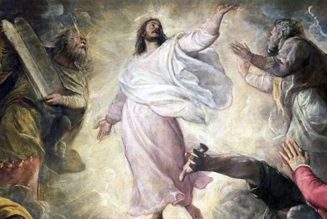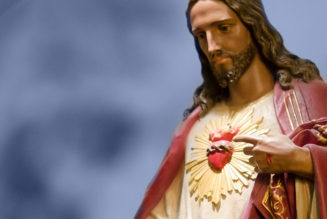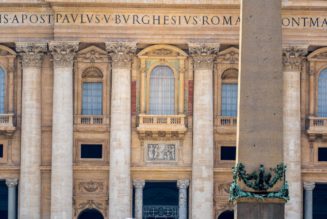By Dr. Jeff Mirus ( bio – articles – email ) | Jun 17, 2022
At some point in any leadership situation, we have to evaluate the fruits of that leadership. It isn’t enough to assume that someone means well and ignore the results.
This is especially true for Catholic bishops. It is utterly insufficient to speculate as to whether a particular bishop’s “heart is in the right place”, or whether many people find him “warm and likeable”. At some point, we have to ask about practical results: Is the number of priests growing? Is the quality of a specifically Catholic education improving? Do the laity receive encouragement when they uphold unpopular Catholic teachings in the larger social order? Are priests and religious who teach error or abuse the liturgy disciplined? Are Catholic social services explicitly Christian in the way they deal with people, or only fashionably humanitarian? These are all questions which help us to evaluate fruits.
A closely related question is whether or not a Catholic leader has the courage to criticize the values of the dominant culture when they undermine or obscure the truth, including a Catholic understanding of human nature. But let me warn everyone: It is almost impossible to discuss this question in a group which goes beyond the counter-cultural few. In fact, nearly every time a bishop takes a strong stand against a secular ideological trajectory in a Catholic institution (usually an educational or social service institution), the response of many vocal “Catholic” participants in these institutions is to lament how unfair the bishop is and how much good he is undermining.
Let us take the most recent rare example of strong episcopal action—the sanctions imposed by “Phil Lawler’s bishop”, Robert McManus of Worcester, on the Jesuit Nativity School for its deliberate, in your face, public undermining of the Catholic faith. But just try to have a reasonable discussion of what is wrong when Catholics identify with Gay Pride and Black Lives Matter; or try explaining that these movements are rooted in serious falsehoods that it was one of Our Lord and Savior’s redemptive purposes to correct. I am willing to bet that the outcry against the bishop will be fairly strong, even from many who claim the Catholic name.
This is why there are such a great many scandals within the Church today—I mean because Catholic leaders at every level are reluctant to engage in counter-cultural witness. This is also the greatest weakness of the current pontificate—the overwhelming tendency to emphasize vague, common denominator issues, to attempt to find moral credibility by standing up for what nobody denies. In Catholic leaders with this disease you will notice a constant emphasis on platitudes such as human fraternity, environmentalism, education, and economic equity—and almost no emphasis on the concrete moral evils which enslave people to their passions, lead them to abandon their moral responsibilities, weaken and destroy families, twist human laws to approve and even foster vice, and substitute state bureaucracies for healthy human communities.
The curse of a vague acceptability
Now the first followers of Jesus Christ were afflicted with no such vagueness. If you read the gospels, the Acts of the apostles, and the letters in the New Testament, you will find no hesitation in identifying and denouncing every specific form of human sin, and also insisting on zealous adherence to the life of grace and total commitment to Christ and the Church, including the dangers of receiving Communion without these commitments. A recent news story shows the contemporary contrast to such apostolic fervor. When Pope Francis spoke to the Missionaries of Africa, he emphasized that “the apostle is not a manager…the apostle is a witness”, which is certainly true. But he should have quit when he was ahead, instead of going on to explain: “Witness essentially means two things: prayer and fraternity.”
Now let us be painfully honest about this just for a moment. Once again, the genuine witness to Christ and His teaching is lost in a vagueness to which nobody who is of the world could object—and which would have been unrecognizable to any of the original apostles apart from Judas. The Pope’s own excuse on this occasion is apparently the presence of Islam in Africa; perhaps a Christian specificity is unhealthy. But the point is that in this world a Christian specificity is always unhealthy; it always harms one’s chances of “getting on”. But for all that, a Christian specificity is not only always good, but always necessary—and always required for fruit that will last.
I am sick of even my own cowardice. I presume that in this I am not alone—this propensity to miss the opportunity for saying what needs to be said; to refuse to introduce a specific Christian word (or Word); and above all to speak those Christian words which are unpopular in the world. But note that this is a moving target. Christianity encompasses all genuine human goods, which means that there are some recognized goods in every time and place that are admirable even from the Christian point of view. Every human community encompasses at least some genuine goods. This means that it is depressingly easy to pretend we are just fine as Christians as long as we can find something nice to say.
But we need to remember that in the vast majority of cases, the human person fails morally and spiritually because he is willing to embrace only culturally popular goods. We substitute the approval of the human community for God’s approval, and deceive ourselves about our own goodness simply by identifying as our standard whatever it is that “everybody knows”—and steadfastly refusing to look at what “everybody knows” in the light of Christ.
Sadly, the truth is that there are always many goods that Christians understand (and ought to live by) which have been obscured or lost altogether in any given human community. It is these goods which are difficult to embrace, simply because they are unpopular. But it is precisely these that are the currently essential goods, the uniquely salvific goods which wrench me free from those cultural patterns which are my own bonds of sin.
Success, failure, salvation, damnation
How damning is this realization! We get no credit with Christ when we enthusiastically embrace what “everybody knows”, because what everybody knows is merely the dominant moral prejudice of the moment, which we are called to measure against the very Word of God. Human culture drifts along primarily on the popular notions espoused by each culture’s dominant groups—the people who make human opinion. It’s a disconcertingly moving target, as we have seen, and it leaves in its wake new generations astonished at how blind and backward and evil their predecessors were just twenty or thirty years before.
But with each of these shifts, it becomes increasingly difficult to maintain the illusion that the Catholic Church can enjoy a favored worldly status by living within the ever-diminishing space afforded by an increasingly corrupt culture. Sadly, a church that begins by speaking platitudes to power ends by giving few coherent reasons why anyone—Catholic, Christian or otherwise—should rally to her standard, or (more to the point) see in her the distinctive Presence of Jesus Christ.
So I ask again about each diocese: Is the number of priests growing? Is the Christian content in Catholic education expanding and being made more explicit? Does the bishop have the backs of those lay people who bear public witness to the truths of Christ (or, we might ask, does there always seem to be something suspiciously wrong with the “way” they do it)? Are clergy removed who abuse the rights of the faithful to the Church’s liturgy and the Church’s teaching? Do Catholic social services utterly refuse to facilitate evil in their assistance to pregnant women and the adoption of children? Would the Church rather do without federal grants than sin? And to repackage an old saying: Would the bishop rather speak the truth and be thought a fool than refuse to speak and remove all doubt?
Ideally all Catholic leadership would be deeply rooted in the love of God. But we are all weak and wavering sometimes, so just a touch of terror can also be healthy. Perhaps layman and deacon and religious and priest and bishop and pope alike should begin each day by meditating on these words of Jesus Christ:
Nothing is covered up that will not be revealed, or hidden that will not be known. Therefore whatever you have said in the dark shall be heard in the light, and what you have whispered in private rooms shall be proclaimed upon the housetops. I tell you, my friends, do not fear those who kill the body, and after that have no more that they can do. But I will warn you whom to fear: fear him who, after he has killed, has power to cast into hell; yes, I tell you, fear him! [Lk 12:2-5]
Sound Off! CatholicCulture.org supporters weigh in.
All comments are moderated. To lighten our editing burden, only current donors are allowed to Sound Off. If you are a current donor, log in to see the comment form; otherwise please support our work, and Sound Off!

There are no comments yet for this item.
Join Our Telegram Group : Salvation & Prosperity









